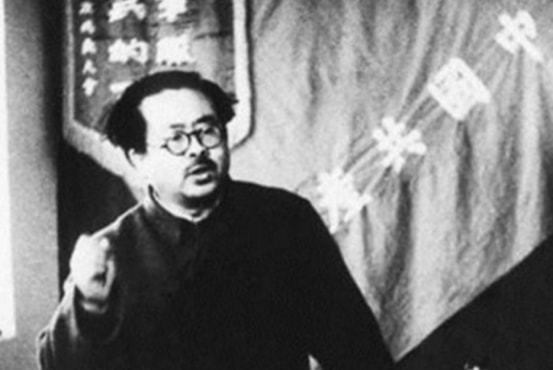On October 27, 1950, the bad news came, and Ren Bishi died at the age of 46.
Ren Bishi was called "mother within the party" for taking care of party cadres, "quilt" because of his kindness to others, and "camel of the party" because of his selfless responsibility, just as Ye Jianying said, he was like a camel, walking a long and arduous road...

When Ren Bishi was less than 17 years old, he unswervingly threw himself into the cause of the party and was one of the former five secretaries of the first generation of the leadership core of our party. In 1928 and 1929, he was captured twice by the enemy and brutally electrocuted him in the heart. After Ren Bishi was rescued, he suffered from severe hypertension.
During the Long March, Ren Bishi went forward with illness and never sat on a stretcher, he urged the three main forces of the Red Army to join the division, and on the way, regardless of personal safety, protected Liao Chengzhi, Luo Shiwen, Zhu Guang and other cadres. After 1946, he and his troops moved to Xibaipo, and on the way, he fell to the ground due to illness many times, but he got up again and did not let anyone help him until he reached his destination. In the cave of Xibaipo, Ren Bishi, who was dragging a sick body, coordinated with Chairman Mao to command the three major battles that turned the tide of the war.
On the eve of the founding of New China, Ren Bishi walked into Beijing with a blanket that had been used for 30 years and a sweater worn for 10 years. At that time, some staff members proposed to change him into a new set of clothes and a new quilt, but he refused, and sincerely said: "We must not forget that our country and people still have difficulties." He paid great attention to saving electricity, and often instructed the people around him to "turn off the lights when people go out."
At that time, China was in ruins, and Ren Bishi never cared about personal self-interest, considered the national interests in everything he did, and then rejected new cars and new houses, saying that he wanted to use all the money for industrial construction.
After the end of the military parade at Xiyuan Airport, Ren Bishi fell ill again, and the low pressure was as high as 150, but he was still in the public night. Under the advice of everyone, he finally temporarily put down his work and moved to Yuquan Mountain for recuperation, but his health deteriorated, and even a coma appeared, Chairman Mao heard about it, asked someone to send a jar of small red fish, and personally wrote a letter to wish him an early recovery of health.
In this way, the founding father failed to participate in the founding ceremony, and when he heard the live broadcast on the radio, he told his wife Chen Chunying that the victory was not easy to come by and should be cherished. After finishing the recuperation, Ren Bishi continued to devote himself to work.
On October 24, 1950, Ren Bishi was studying the situation map of the Korean battlefield, when the Chinese Volunteer Army had already entered the Korean War five days ago, and he was thinking about the korean war situation all the time. However, at 7 o'clock on October 25, Ren Bishi died of sudden cerebral hemorrhage.
Hearing the bad news, Chairman Mao personally wrote an inscription to mourn and decided to bury Ren Bishi with the highest standard. On October 28, Zhou Enlai, Zhu De, and others carried the body of their old comrade-in-arms to the burial. After arriving in the courtyard, Chairman Mao leaned over to look at his old friend and imprinted his remains on his mind. On October 29, after the memorial service, Ren Bishi's coffin was moved from the Cultural Palace to the Babaoshan Cemetery, and Zhou Enlai and others personally carried out the coffin.
People all over the country were also plunged into endless grief and held activities to mourn Ren Bishi. When the Southwest Bureau of the CPC held a memorial meeting, Deng Xiaoping came to the stage to deliver a eulogy, and because of his heavy heart, he could not speak for a few minutes, and everyone at the scene was blurred with tears.
For 30 years, Ren Bishi never relaxed his work, and his spirit was immortal. The relics he left behind are still the worn-out clothes that have followed him for decades.